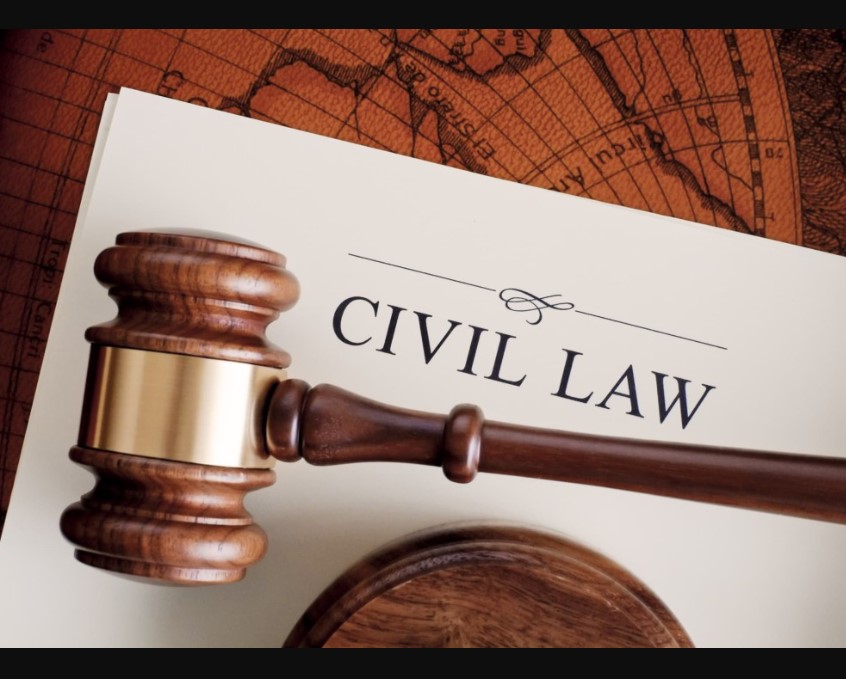
Civil law plays a crucial role in maintaining order within society by governing private disputes between individuals, organizations, or entities. Unlike criminal law, which focuses on crimes against the state, civil law primarily seeks to resolve conflicts and ensure fair compensation for wronged parties. This comprehensive guide will cover the fundamental principles, processes, and different areas of civil law, providing a solid understanding of this legal domain.
What is Civil Law?
Civil law is a legal field that addresses private disputes rather than criminal offenses. It provides a framework for resolving conflicts between individuals or organizations and often involves issues like contracts, property, family disputes, and personal injury claims. Unlike criminal cases, where the state prosecutes an offender, civil cases are initiated by private individuals or entities seeking a legal resolution.
The primary purpose of civil law is to provide relief to injured parties and prevent future harm. When a civil law case is won, the outcome often results in monetary compensation, specific performance, or other legal remedies rather than punitive measures like imprisonment.
Key Principles of Civil Law
Civil law is grounded in several fundamental principles that guide the legal processes and outcomes in civil disputes. These principles are:
- Compensation: The core objective of civil law is to restore the injured party to their previous position by compensating for losses incurred.
- Rights and Obligations: Civil law outlines individuals’ rights and the obligations they owe to others in various types of relationships, including contractual, familial, or professional ones.
- Fairness and Equity: Civil law aims to treat parties fairly and equitably, making judgments based on facts and legal precedent.
- Non-Punitive Approach: Unlike criminal law, civil law does not seek to punish defendants but rather to resolve disputes and ensure fair redress.
These principles shape how civil law cases are approached, judged, and enforced.
Types of Civil Law Cases
Civil law encompasses a broad range of cases, each with unique procedures and legal standards. The primary types include:
Contract Law
Contract law governs agreements between individuals or entities, ensuring that promises made in legally binding contracts are upheld. If one party breaches a contract, the other party may sue for damages or specific performance. Contract disputes commonly arise in business agreements, real estate transactions, and employment contracts.
Tort Law
Tort law addresses civil wrongs or injuries caused by one party to another. Common tort cases include personal injury, negligence, defamation, and product liability. In tort cases, the injured party seeks compensation for damages resulting from the defendant’s actions or inactions.
Property Law
Property law governs issues related to real estate, personal property, and ownership rights. Disputes over land boundaries, ownership, and property usage are common in this area. Property law is also essential in inheritance cases and zoning disputes.
Family Law
Family law handles legal issues within families, such as divorce, child custody, adoption, and inheritance. Courts in family law cases aim to protect the rights of all parties involved, especially minors, and foster arrangements that promote stability and welfare.
Employment Law
Employment law addresses disputes between employers and employees over work-related issues, including wages, discrimination, wrongful termination, and harassment. Employment laws seek to protect workers’ rights and ensure fair treatment in the workplace.
The Civil Litigation Process
The civil litigation process involves several stages, from the filing of a complaint to the final resolution. Understanding each stage can help individuals and organizations navigate civil cases effectively.
Filing a Complaint
Civil cases begin when the plaintiff files a complaint with the court, outlining the facts of the case, the legal basis for the claim, and the damages sought. The complaint must be served to the defendant, providing them notice of the lawsuit.
Pre-Trial Motions and Discovery
During the pre-trial phase, both parties exchange evidence and information through discovery, which may include depositions, interrogatories, and document requests. Pre-trial motions can also be filed, such as a motion to dismiss the case if the plaintiff’s claims are deemed insufficient.
Trial
If the case proceeds to trial, both parties present their arguments, evidence, and witnesses before a judge or jury. The judge or jury then evaluates the evidence, assesses liability, and determines the appropriate remedy or compensation.
Verdict and Judgment
After the trial, a verdict is reached, and the judge issues a judgment. In civil cases, judgments typically involve monetary compensation, injunctions (orders to stop specific actions), or declaratory judgments (defining rights and obligations of each party).
Appeals
If a party is dissatisfied with the outcome, they may file an appeal with a higher court. Appeals focus on legal errors that may have occurred during the trial, rather than re-evaluating facts. The appellate court reviews the case record, legal arguments, and issues a final decision.
Remedies in Civil Law
Civil law remedies differ significantly from criminal law penalties, as they focus on compensating the victim rather than punishing the wrongdoer. Common remedies include:
- Compensatory Damages: These reimburse the plaintiff for financial losses, medical expenses, lost wages, and emotional distress.
- Punitive Damages: Though rare in civil cases, punitive damages are awarded when the defendant’s actions are particularly harmful or egregious.
- Specific Performance: In contract cases, a court may order the breaching party to fulfill their obligations under the contract.
- Injunctions: Injunctions prevent or compel certain actions, commonly issued in property disputes or cases where irreparable harm could occur.
- Differences Between Civil and Criminal Law
Civil law and criminal law serve distinct purposes and differ in terms of procedures, outcomes, and burden of proof:
- Purpose: Civil law resolves disputes and compensates victims, while criminal law seeks to punish offenders and protect society.
- Burden of Proof: In civil cases, the burden of proof is typically “preponderance of evidence” (more likely than not), while in criminal cases, it is “beyond a reasonable doubt.”
- Outcome: Civil cases result in compensation or other remedies, while criminal cases may result in fines, imprisonment, or community service.
The Role of Civil Law in Society
Civil law plays a vital role in maintaining social stability by providing a structured means for resolving disputes. Through civil law, individuals and businesses can address grievances, safeguard their rights, and promote accountability. Additionally, civil law helps prevent potential conflicts by defining clear legal obligations and protections for all parties involved.
By enabling peaceful resolution of private disputes, civil law reduces the need for self-help or vigilante justice, which can undermine social order. It fosters a sense of trust and security, as individuals know they have legal recourse for injuries or breaches of rights.
Challenges in Civil Law
Civil law faces several challenges that impact its effectiveness:
- Cost and Accessibility: Legal fees and court costs can be prohibitively high, limiting access to justice for many people.
- Complexity: The civil litigation process can be complex and time-consuming, which may discourage individuals from pursuing their cases.
- Delays: Court backlogs and lengthy proceedings can delay justice, sometimes undermining the effectiveness of civil law remedies.
Conclusion
Civil law is an essential component of any legal system, providing mechanisms to resolve private disputes, uphold rights, and maintain social order. By understanding the principles, processes, and types of civil law, individuals and organizations can better navigate conflicts, seek redress, and contribute to a stable, fair society. As societies continue to evolve, civil law will adapt to address new challenges and promote justice for all.






